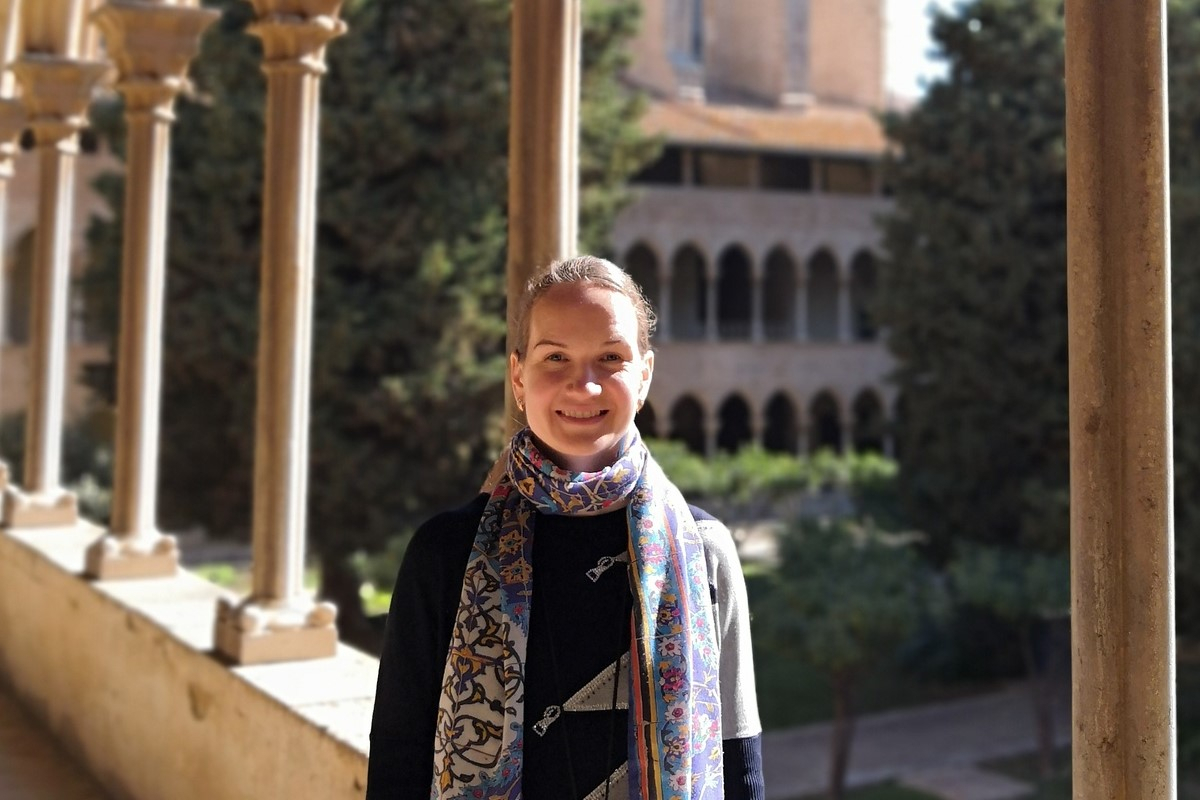Expert from St Petersburg University: self-isolation opens up new opportunities for studying foreign languages

Speaking clubs are a good resource for those who want to learn a foreign language and communicate freely with people from other countries. University professors actively participate in such projects and help the city residents to learn about the culture of other countries and improve the knowledge of foreign languages.
Ekaterina Pischurnikova is a member of the Research Centre of the Islamic Republic of Iran of St Petersburg University, assistant lecturer of the Department of Iranian Philology of St Petersburg University, and manager of the Persian Language Speaking Club at the Vladimir Mayakovsky Central City Public Library. She spoke about the club's work during self-isolation, the motivation of its participants, and the opportunities for using the acquired language skills.
How did the idea of establishing the Farsi Speaking Club come about?
In 2019, St Petersburg University became the first and only organisation in Russia that was authorised to conduct the
The author of this idea is linguist Bella Laufer, who graduated from St Petersburg University with a degree in English philology. After her trip to Iran, being inspired by the Iranian culture, she started studying Farsi in St Petersburg and then continued her studies in Iran. Once back, Bella suggested to the administration of the Mayakovsky Library's Centre for Eastern Cultures to create a Farsi speaking club, and they supported her idea.
The speaking club began its work headed by Bella. After she moved to Iran, I was asked to supervise its activities. For the third year now, we have been meeting with Farsi language fans in the library.
In conditions of self-isolation, the club continues its work online. How does this format differ from face-to-face meetings?
The online format has both its pros and cons. Of course, it is more comfortable and easier to study the language without leaving home. Besides, since there is no need for a classroom, we have an opportunity to meet with club members more than once a month. After switching to online mode, we got participants from other regions, who normally do not have access to our club meetings.
Unfortunately, even high quality online platforms cannot completely replace personal communication.
Who usually attends the club and what is the motivation of people who want to learn Farsi?
Everyone has a different motivation. Some people need the Persian language for work. Some are driven by an interest in Iranian culture and, of course, in Persian poetry, which has given the world such unrivalled masters as Hafiz, Saadi and Khayyam. Some of our students have been to Iran and have been impressed by the beauty of the Persian language and Iranian hospitality. Others turn up at the club meetings by chance, out of curiosity, without having a slightest idea about Iran, but then they get so fascinated that they become regular members of the club.
It is very gratifying, that we have members who decided to proceed with their studies and obtain a master’s degree in ‘Oriental Studies and African Studies’ at St Petersburg University.
Assistant lecture of the Department of Iranian Philology of St Petersburg University Ekaterina Pischurnikova
Who was the most unusual club member?
Last year a Japanese student Yuki Sugihara, who studied Russian at St Petersburg University, came to our club. He happened to notice an advertisement about speaking clubs at the University. Before he came to the club, Yuki knew little about Farsi and Iran, but at the club he showed a serious interest in Persian and achieved great success in language acquisition. Now Yuki is back in Tokyo.
Do you invite native speakers? Who are they?
Yes, of course, we have Iranian students who study at St Petersburg universities in various fields. We always welcome Iranian guests. It is important that many members of the club continue to communicate outside the club and become friends.
Do other students participate in the club's activities?
Sometimes we see graduates of St Petersburg University who once learned Farsi but have not practiced the language for a long time.
Are there different levels of language training? Which topics are usually discussed?
Everything depends on a specific group; students change frequently and it is unpredictable every time. So far, we have been meeting on a monthly basis and are not able to create groups with different levels of language training.
My job is to structure the conversation in such a way that no one gets bored and everyone finds something useful. We try to relate the topics to interesting dates in Iranian and Russian calendars.
We plan to devote our next meeting (25 April) to the Day of Cosmonautics and the topic of space. We will listen to a small story in Farsi about the flight of Yuri Gagarin, and talk about the first woman among space tourists, Anousheh Ansari from Iran.
How do you think a language club helps to master Farsi?
In my opinion, live communication helps not only to replenish the vocabulary, but also to overcome the language barrier. We are trying to create the most comfortable environment for all club members.
Of course, it is impossible to learn the language quickly if you only meet once a month at a club. However, there are many opportunities for self-study including online Farsi courses. They are developed by St Petersburg University and available on the Open edX platform. A speaking club is a great opportunity to meet those who are fascinated by Iran just like you, and to systematise and expand knowledge about the language and culture of the country.

